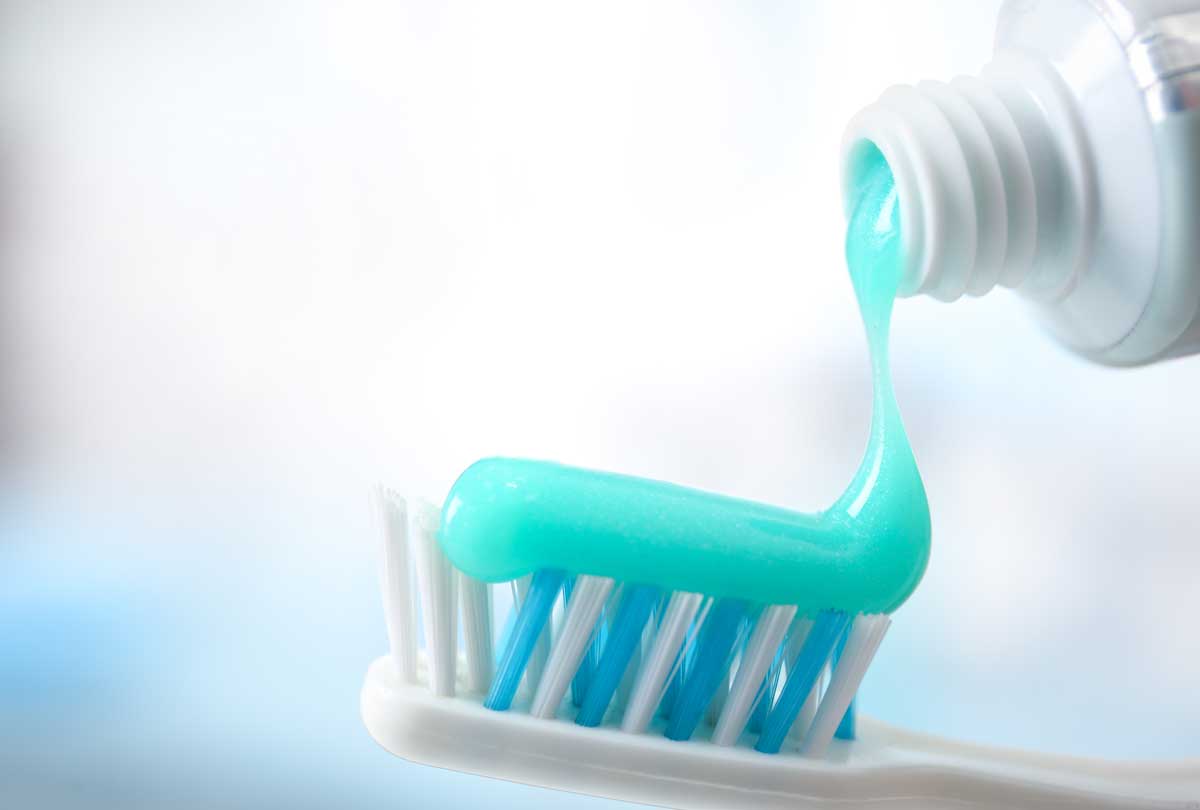When life gets busy (and when doesn’t it?), it can be easy to ignore the notices of “It’s been 6 months since your last dental appointment.”
Yet doing this on a regular basis can add up to big problems for your smile, not to mention your bank account. Unlike other aches and pains in the body that sometimes go away on their own, tooth problems – whether it’s sensitivity or a suspected cavity – only get worse with time.
So don’t procrastinate another day. If you’re experiencing any of these 9 oral health problems, take it as a sign that you need to see your dentist, ASAP, and make an appointment today.
1. You wake up with jaw pain or headaches
You’d love to be one of those people who springs out of bed, well rested and ready to take on the day. But let’s be honest: when you wake up with jaw pain and a pounding headache, it’s hard to be your best self.
These conditions are often caused by TMJ (temporomandibular joint disorder) or tooth grinding (bruxism), which can wear away the enamel and/or cause cracks in the teeth, creating even bigger – and more expensive – dental problems. The solution can be as simple as wearing a custom mouth guard during the night, which your dentist can have custom made for you.
2. Your mouth is dry all the time
It sounds harmless enough on the surface (what’s the big deal about a little less saliva?), but a chronic dry mouth can be one of the worst conditions for your smile. Saliva contains calcium and phosphate, which help protect the teeth from acid attacks after we eat or drink. Without enough saliva, our teeth are much more susceptible to cavities and decay.
Saliva is also rich in oxygen to fight the production of Volatile Sulfur Compounds, the molecules responsible for bad breath. Some dry mouth cases become so severe that dentures are needed at a very early age because of the amount of decay. Read more about what causes dry mouth and how to get rid of it.
3. Your breath is bad even after brushing
Halitosis (chronic bad breath) can become so debilitating that many people find themselves socially withdrawing and just hunkering down at home. There are many reasons your breath can be bad after brushing: sinusitis, tonsil stones, untreated cavities, not flossing, and even the oral health products you use. Bacteria planted on the way back of the tongue is also a major cause of persistent bad breath. (Problem solved with a tongue scraper.) To get to the root cause of your bad breath after brushing, get in to see your dentist.
4. Your gums bleed when you brush or floss
Healthy gums should not bleed at all when you brush or floss. If you see red when doing these activities, it’s time to get in to see your hygienist for a teeth cleaning. Bleeding gums are often the first sign of gingivitis (inflammation of the gums) and is caused by poor oral hygiene. The good news? Gingivitis is the earliest stage of gum disease and is easily reversed with good oral care.
Did you know? Brushing your teeth harder won’t make them cleaner. Brushing too hard can inflame your already sore gums and wear away the enamel from your teeth, making you more prone to cavities and tooth sensitivity. Once your enamel is gone, it’s gone forever, so practice the art of gentle, soft brushing with a low-abrasion toothpaste and avoid medium or hard-bristled brushes.
5. You’ve been diagnosed with diabetes
If you’ve been diagnosed with diabetes, it’s especially important to get in to the dentist, as diabetics require more frequent dental care and, oftentimes, unique treatment plans to help control bacteria in the mouth and halitosis. Dental disease can make diabetes symptoms worse and vice versa. In fact, periodontal disease (the most advanced form of gum disease) affects one in three diabetics. Check out these 5 dental care tips for diabetics.
6. You have tooth pain that occurs randomly or when you bite down
There’s nothing that hurts quite like tooth pain (although stubbed toes can certainly hold their own in this department). A crack in your tooth, a loose or broken crown, untreated cavities, and tooth infections can all cause pain that’s especially bad when you try to chew. Don’t let the pain, which can feel dull, aching or stabbing, go untreated. It will only get worse and begin to severely interfere with your sleep and quality of life.
7. You have a metallic taste in your mouth
Does it often taste like you’ve been munching on metal? If you’re otherwise healthy, gum or tooth infections are the likely culprit behind that foul taste in your mouth. Other common causes of metal taste in the mouth include sinus infections, certain prescription drugs, or over-the-counter multivitamins that have heavy metals, such as zinc supplements.
8. Your teeth are changing color
We all know what a yellow hue means – our teeth are getting stained, and we need the magic of a hygienist to remove our plaque and tartar buildup. But what about other types of discoloration? If you notice dark spots on your teeth, that usually means your decay is severe. This discoloration could be from acid that has created a hole in your tooth (cavity). If you notice dark staining around your fillings or crowns, that can signal a buildup of bacteria or even a crack in your tooth or dental work. Either way, if your teeth are dark in color, you’ll want to see the dentist, asap.
9. Your teeth are sensitive to hot and cold
Are sensitive teeth keeping you from enjoying that ice-cold glass of lemonade or soothing cup of chamomile tea? Sometimes, just being outdoors and breathing in the cold winter air can trigger unbearable tooth pain. If you’re tired of dealing with tooth sensitivity, be sure to visit the dentist to get to the root cause of your tooth pain.
Pro Tip: Your dental products could be contributing to your sensitive teeth. Steer clear of toothpastes promising extra scrub and whitening superpowers. These can be too abrasive for the teeth, weakening the enamel and making you prone to tooth sensitivity. Also, use teeth whitening strips with caution. More than 50 percent of people who whiten their teeth report tooth sensitivity.
Tooth Remineralization Is the Secret to a Healthy Smile
As we go about our day, our teeth are naturally at risk from demineralization (the first stage of tooth decay). When we consume sugary or starchy items, the sugars interact with bacteria in the mouth, creating acids that attack our enamel. Strong enamel is necessary to prevent decay, tooth sensitivity, erosion and discoloration.
Saliva is the key to neutralizing this acid and adding the minerals calcium and phosphorous back into our teeth. When acid attacks happen too frequently via poor nutrition or poor oral hygiene, and your saliva can’t keep up the fight, decay occurs.
If saliva is the hero in preventing decay, then fluoride is the sidekick. This natural mineral works with your saliva to strengthen your teeth and penetrate minerals into the enamel. If you have decay that hasn’t turned into a full-fledged cavity, fluoride can actually remineralize the area and prevent you from getting a cavity.

Important: Choose Non-Staining Fluoride Dental Products
Reverse decay and remineralize your teeth … without staining your pearly whites. When choosing a fluoride toothpaste or fluoride mouthwash, avoid the ones that contain stannous fluoride, which can stain your teeth brown so that it looks like you have an out-of-control coffee habit. Yikes … not really worth the decay-fighting benefits, right?
Oxyfresh, a leader in safe, environmentally friendly dental products for over 35 years, is the natural choice of dentists because we use a safe and effective concentration of neutral, non-staining sodium fluoride in our anti-cavity toothpaste and mouthwash.
Combine that with our exclusive bad-breath fighter Oxygene® and natural ingredients like essential oils and zinc, and you have dental products that will work FOR your smile instead of against it.
Oxyfresh Cavity-Protection Toothpaste
Keep your enamel strong and fight cavities and tooth sensitivity every time you brush. This non-staining fluoride toothpaste is low abrasion to protect your enamel and existing dental work.
Not only will your teeth be stronger when you use this fluoride toothpaste – your breath will be fresher! Oxyfresh Cavity Protection Toothpaste contains both Oxygene® and zinc to double-down against the bacteria that causes bad breath.
- Relief for tooth sensitivity
- Instant, all-day fresh breath
- Dye-free for a naturally bright smile
- Natural spearmint oil to stimulate saliva production
- pH balanced to help your saliva fight bacteria and acid attacks
Oxyfresh Cavity Protection Mouthwash
Always alcohol-free for no burn or dry mouth, this fresh mint anticavity mouthwash is perfect if you’re prone to cavities or decay, or if you suffer from sensitive teeth or halitosis. Swish with Cavity Protection Mouthwash every day and you (and your dentist) will notice a major difference in the health of your smile.
If natural is important to you, you’ll love the fact that this fluoride mouthwash is sweetened with xylitol, a sugar alcohol that occurs naturally in plants. It gives the mouthwash a refreshing taste (along with natural peppermint oil) and is also clinically proven to protect the teeth from decay.
- Alcohol-free to prevent dry mouth
- Dye-free for a naturally bright smile
- Oxygene® for all-day fresh breath
- Xylitol for added anti-cavity powers
- pH balanced to help your saliva fight bacteria and acid attacks
Don’t spend another day suffering from tooth pain, sensitivity and other mouth problems. Get in to see your dentist and partner with Oxyfresh for safe, effective fluoride and fluoride-free dental products your whole family will love.




